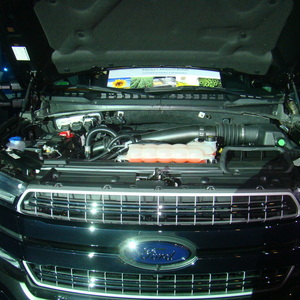Biodiesel can help reduce injector deposit formation

Photo: Ron Kotrba, Biodiesel Magazine
March 15, 2018
BY Ron Kotrba
Modern diesel engines utilize high pressure common rail fuel systems whose small injector gaps are highly sensitive to deposits. New research from the University of Rostock in Germany has shown that biodiesel use can minimize deposit formation in common rail injectors.
“Deposit formation processes could be simulated and factors influencing the formation of deposits could be identified,” stated Germany’s biodiesel quality management association, AGQM, one of the supporting organizations of the research. “The resulting measures have been examined for their effectiveness in this project.”
Advertisement
The use of aromatic-free fuels such as biodiesel and renewable diesel can reduce the deposit layer thicknesses, the research shows, with thickness decreasing as biodiesel content increases.
“The studies also showed that the formation of soaps is particularly critical and should therefore be avoided,” AGQM stated. “The standard, compliant biodiesel used in the project did not produce any soap-like coverings.”
Advertisement
The results of these tests not only prove the suitability of biodiesel in modern diesel engines, but they also appear to demonstrate biodiesel’s superior and beneficial fuel characteristics compared to fossil diesel.
The project was financed by Fachvereinigung Verbrennungskraftmaschinen (FVV e.V.) and the Agency for Renewable Resources (FNR e.V.), and it was supported and accompanied by AGQM and others.
Related Stories
ATOBA Energy and Air Moana are partnering to implement scalable solutions for the supply of SAF. The collaboration aims to ensure long-term SAF availability while supporting local initiatives to develop sustainable fuel production in Tahiti.
Kintetsu World Express Inc. has signed an additional agreement with Hong Kong, China-based Cathay Pacific Airways for the use of sustainable aviation fuel (SAF). The agreement expands a three-year partnership between the two companies.
Broco Energy on July 17 announced a new partnership with the Massachusetts Port Authority (Massport) to deliver and transition Massport's fuel tanks to renewable diesel across its various facilities.
Shell Aviation, Accenture, and Amex GBT on July 10 announced Avelia is in the process of evolving to an industry solution with independent data hosting and a multi-supplier model helping users access the GHG benefits of SAF.
Avia Solutions Group, the world's largest ACMI (aircraft, crew, maintenance, and insurance) provider, has partnered with DHL Express to reduce greenhouse gas emissions from its international shipments using SAF.
Upcoming Events










